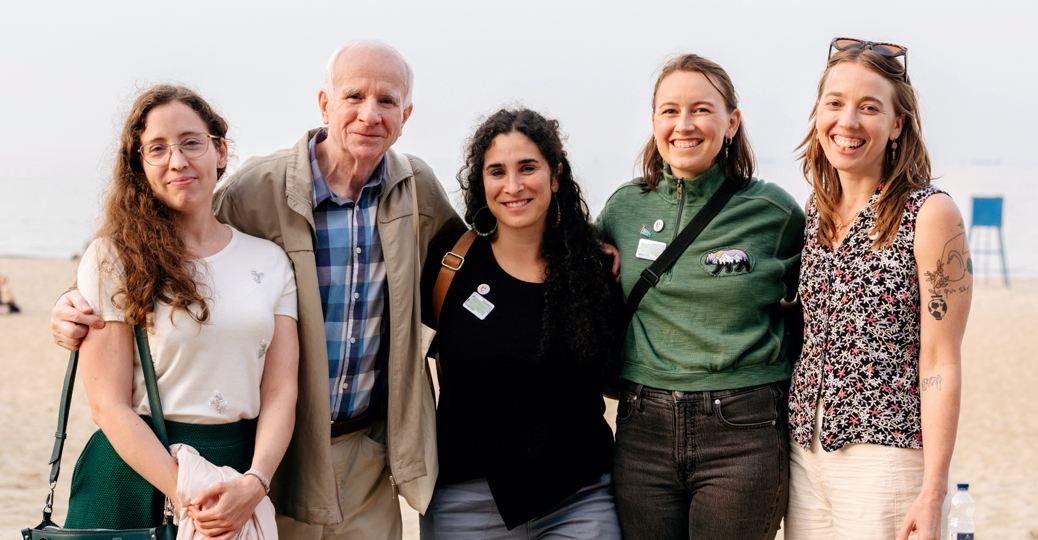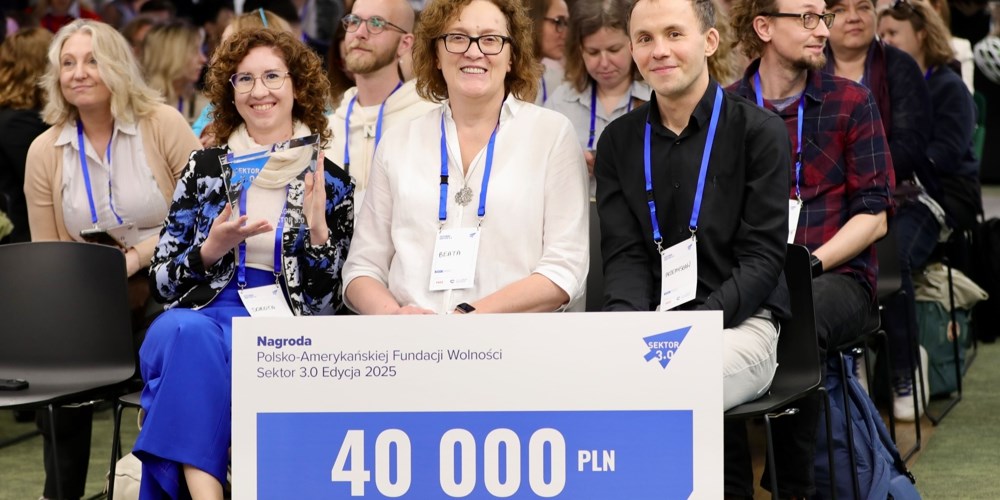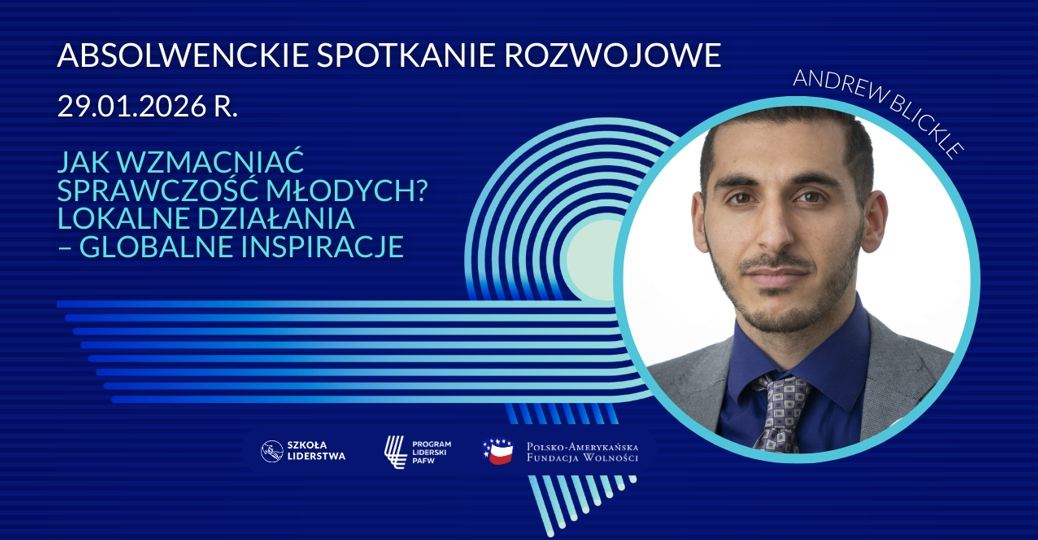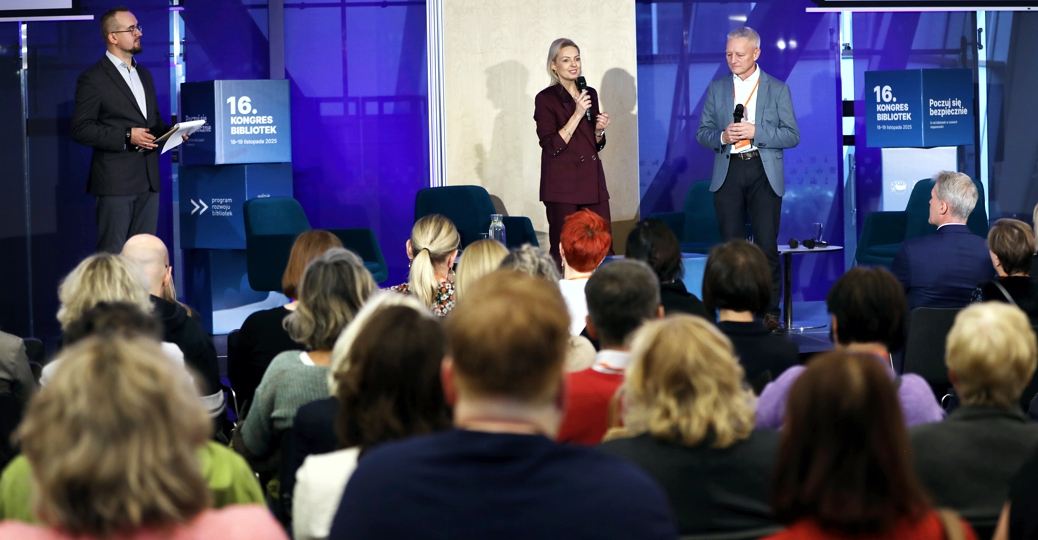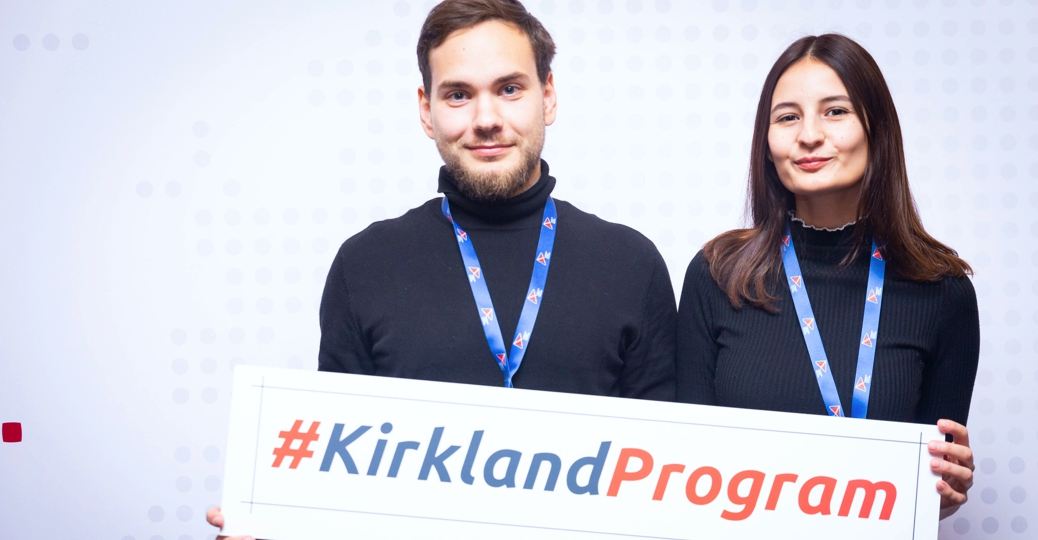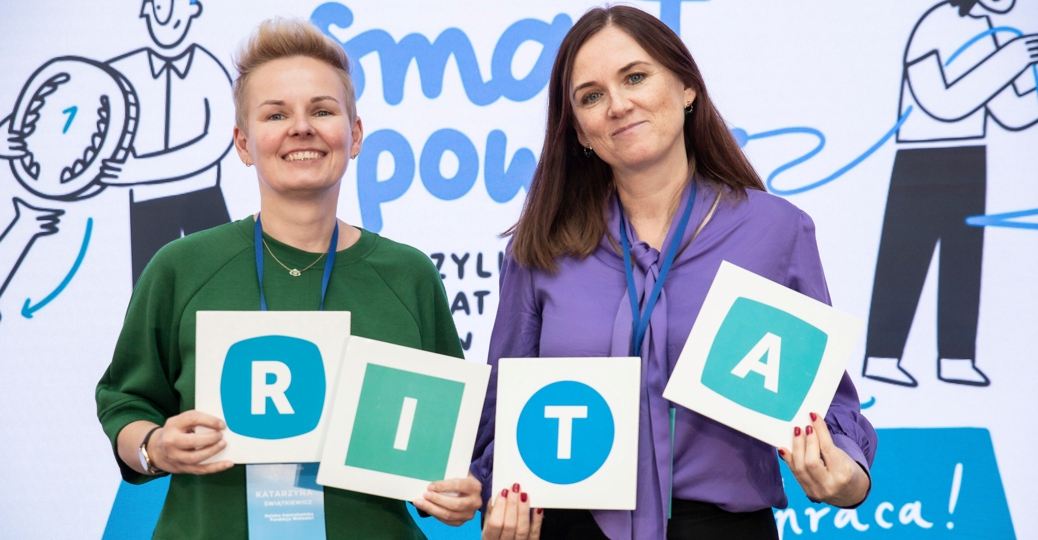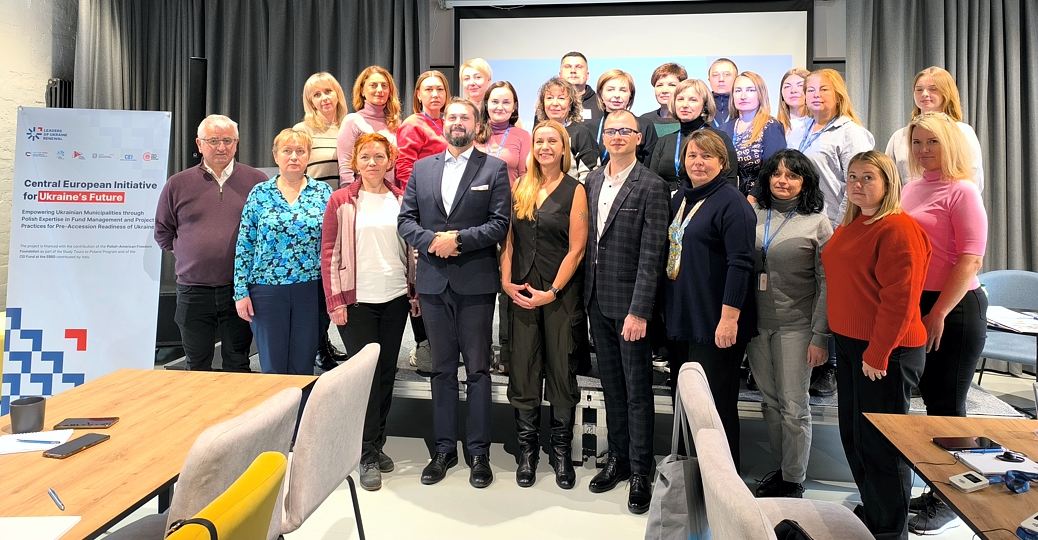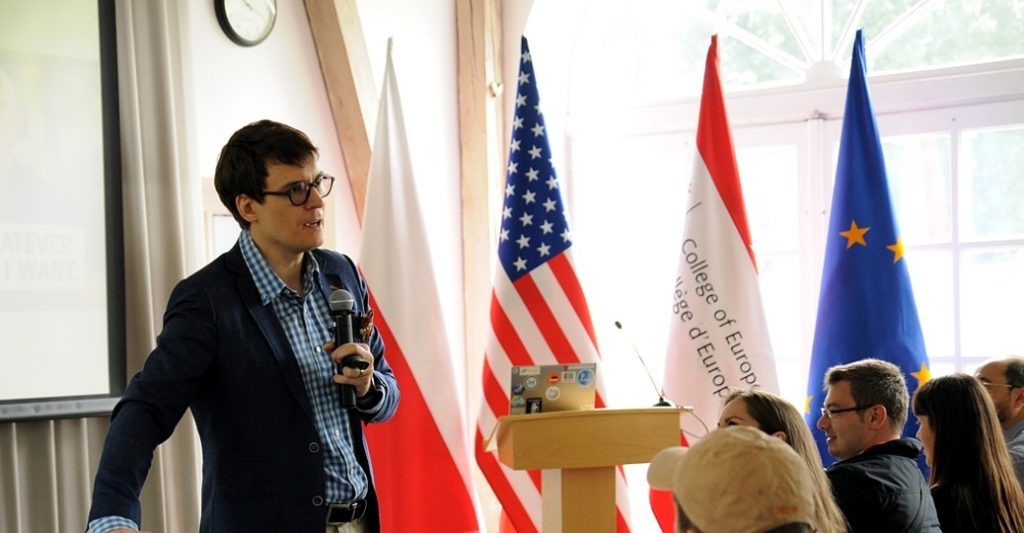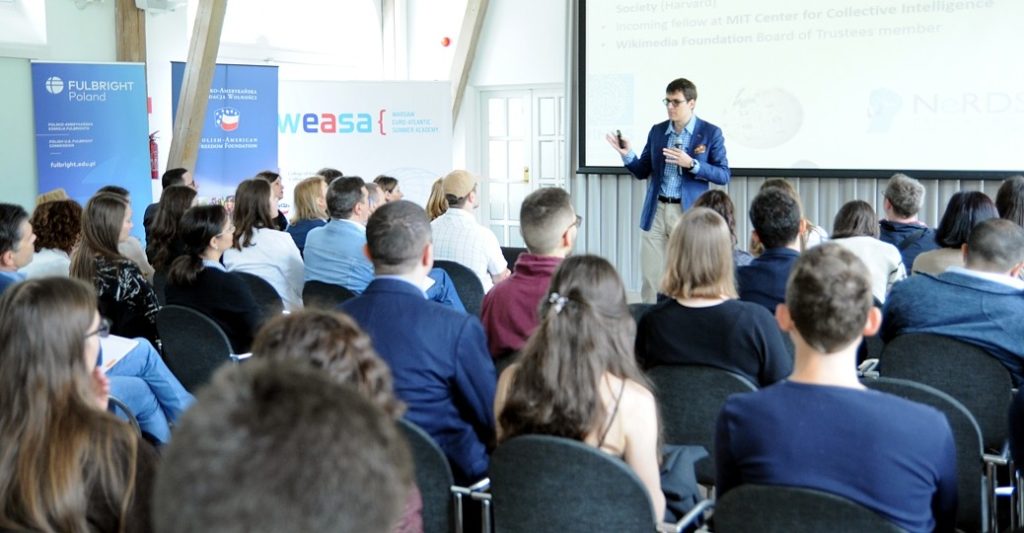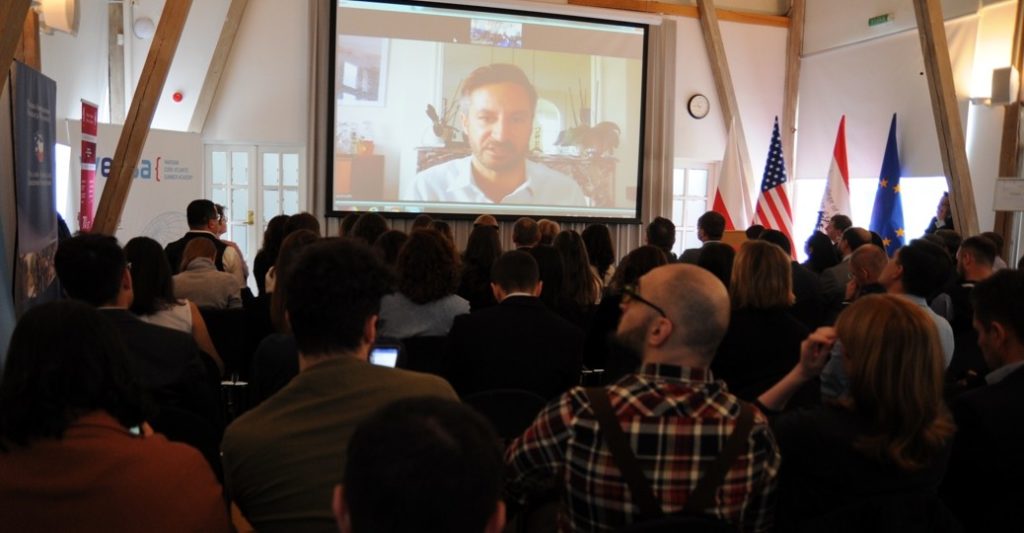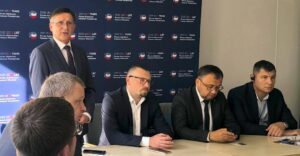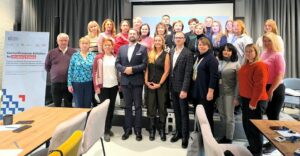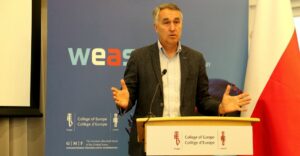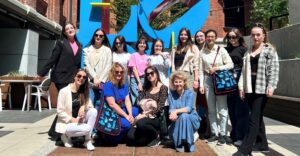On July 9, 2019, Warsaw Euro-Atlantic Summer Academy (WEASA) was inaugurated at the Natolin Campus of the College of Europe. It is already its seventh round.
WEASA is an offer of two-week summer lecture sessions addressed mainly to experts from Eastern Partnership countries, such as analysts, political and government advisors, think tank and NGO staff, civil servants, and journalists.
For the last three years the leading subject at WEASA have been issues related to new technologies – their development and impact on people, social life and politics.
The opening lecture was given by Ryan Heath of POLITICO Europe, one of the leading commentators on European politics. He focused on the changes taking place in traditional media in the digital era and the possible effects of these for both European politics and societies.
This-year round of WEASA is attended by 51 participants selected from among over 350 applications submitted from 13 countries. By July 17, participants will listen to lectures and take part in workshops on such subjects as social media and artificial intelligence, disinformation, or impact of digital algorithms on our lives.
WEASA is a joint initiative of the Polish-American Freedom Foundation, the Natolin Campus of the College of Europe, the German Marshall Fund of the United States (GMF), and since 2017 a partner of Academy has been the Polish-U.S. Fulbright Commission. The Polish-American Freedom Foundation supports Warsaw Euro-Atlantic Summer Academy under the “Study Tours to Poland” Program managed by the Leaders of Change Foundation.
The former 6 editions of WEASA (2013-2018) were participated by a total of 273 people, including 244 participants from Eastern Partnership countries: 29 students form Armenia, 21 from Azerbaijan, 28 from Belarus, 50 from Georgia, 32 from Moldova, and 84 from Ukraine. Starting from 2017, WEASA is also attended by experts from Western Balkan countries (Albania, Bosnia and Herzegovina, Former Yugoslav Republic of Macedonia – from 2019 Republic of North Macedonia, Montenegro, Kosovo, and Serbia).
More on WEASA on: https://www.weasa.org/









